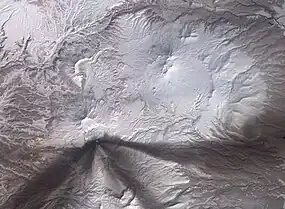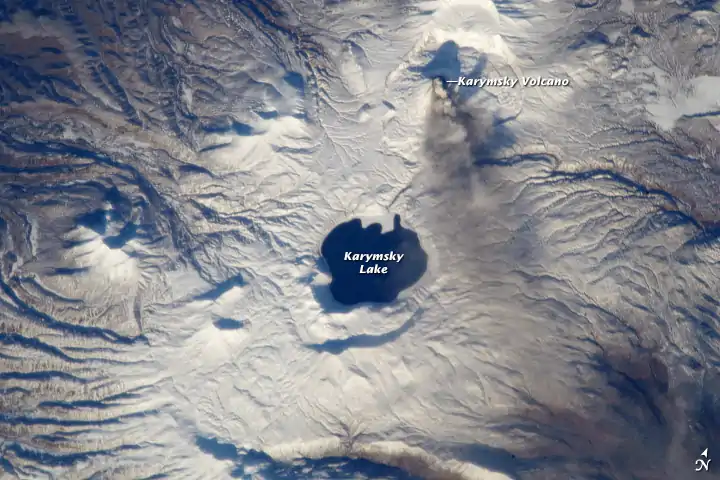| Karymsky | |
|---|---|
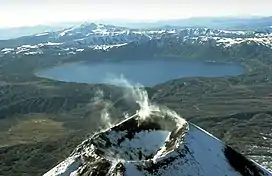 The summit of Karymsky with the crater lake of Akademia Nauk volcano in the background. | |
| Highest point | |
| Elevation | 1,536 m (5,039 ft)[1] |
| Coordinates | 54°02′52″N 159°26′32″E / 54.04778°N 159.44222°E[2] |
| Geography | |
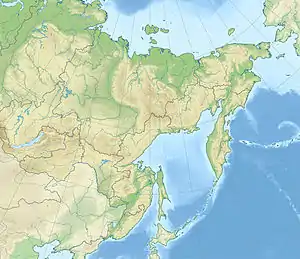 Karymsky Location of Karymsky volcano 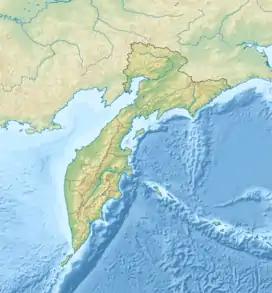 Karymsky Karymsky (Kamchatka Krai) | |
| Location | Kamchatka Peninsula, Russia |
| Parent range | Eastern Range |
| Geology | |
| Age of rock | Holocene |
| Mountain type | Stratovolcano |
| Last eruption | 2001 to 2023 (ongoing, non-stop) [1] |
| Climbing | |
| Easiest route | basic rock/snow climb |

Karymsky (Russian: Карымская сопка, Karymskaya sopka) is an active stratovolcano on the Kamchatka Peninsula, Russia. It and Shiveluch are Kamchatka's largest, most active and most continuously erupting volcanoes, as well as one of the most active on the planet.
It is named after the Karyms, an ethnic group in Russia.
Description
Karymsky is a symmetrical stratovolcano rising within a 5-km-wide caldera that formed during the early Holocene. Much of the cone is mantled by lava flows less than 200 years old. Historical eruptions have been vulcanian or vulcanian-strombolian with moderate explosive activity and occasional lava flows from the summit crater.[2] There is currently an ongoing cycle of non-stop eruption occurring, and is the peninsula's most active, and reliable volcano, which has been erupting continuously since 1996.
Eruptions
An ongoing cycle of almost continuous eruption has been occurring since 1996.
See also
References
- 1 2 "Karymsky Volcano". Volcano Discovery. 7 Mar 2019. Retrieved 2020-01-26.
- 1 2 "Karymsky". Global Volcanism Program. Smithsonian Institution. Retrieved 2020-03-29.
External links
 Media related to Karymsky volcano at Wikimedia Commons
Media related to Karymsky volcano at Wikimedia Commons
